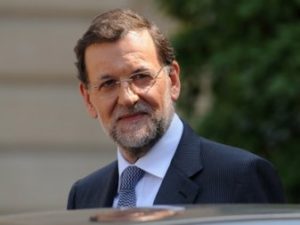Spain flexes diplomatic muscle

It has been a long time since Madrid hosted anything that could credibly be described as a summit. That dry spell ends on Monday, when Mariano Rajoy is due to host political leaders from six southern European countries at a royal retreat outside the capital.
The meeting is officially dedicated to a discussion about Brexit and the future of the EU. For Spain’s prime minister, however, the summit offers a chance to lay down a marker for his new government: after long years at the margins of the European political debate, Madrid is once again keen to flex its diplomatic muscle. “There is a real willingness in Spain to regain influence at a time when other top European countries are absorbed by their own problems. Spain is playing its cards, and other countries are not,” says Borja Lasheras, the director of the Madrid office of the European Council on Foreign Relations. Perhaps the clearest sign yet of Spain’s new clout came late last month, when the EU published its Brexit negotiation guidelines. After some last minute lobbying by Mr Rajoy, the text included an unexpected reference to Gibraltar, the UK territory in southern Spain that Madrid claims as its own. It stated that any post-Brexit agreement between the UK and the EU would not apply to Gibraltar “without the agreement between . . . Spain and the United Kingdom”. In legal terms, the phrase was of little importance (all EU governments have the power to veto a post-Brexit trade deal with the UK). In political terms, however, the reference was seen as a clear-cut win for Madrid — and as a warning to London of the political pitfalls that lie ahead. The EU, which has traditionally acted as a constraint on Spanish policy towards Gibraltar, gave notice that its loyalty now lies with Madrid. The revelation triggered anger in Gibraltar and a section of the British media and political establishment — giving Spain the opportunity to react with cool disdain. Alfonso Dastis, the foreign minister, said there was “no reason” for anyone in the UK “to lose their nerve”.








